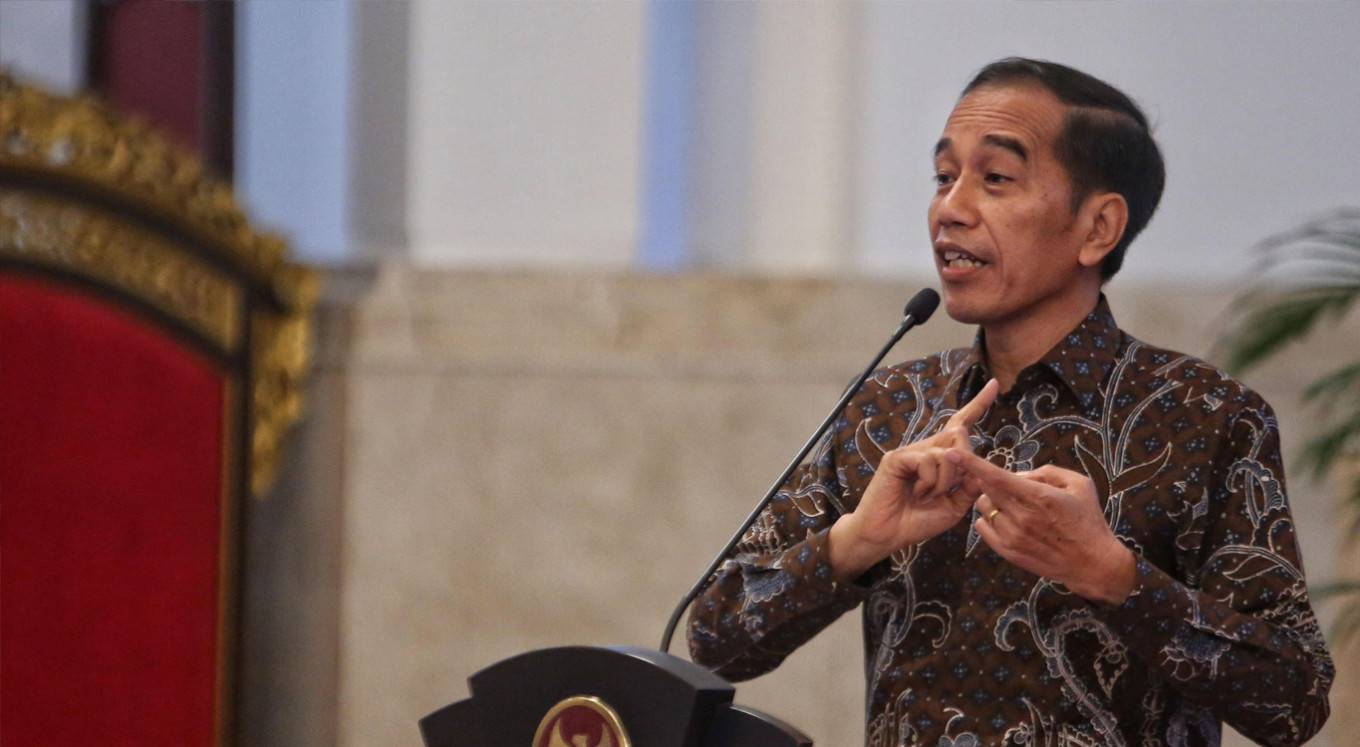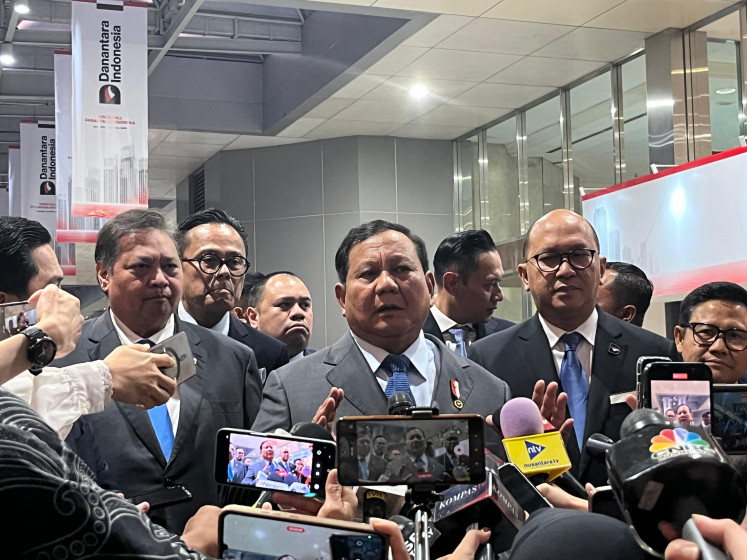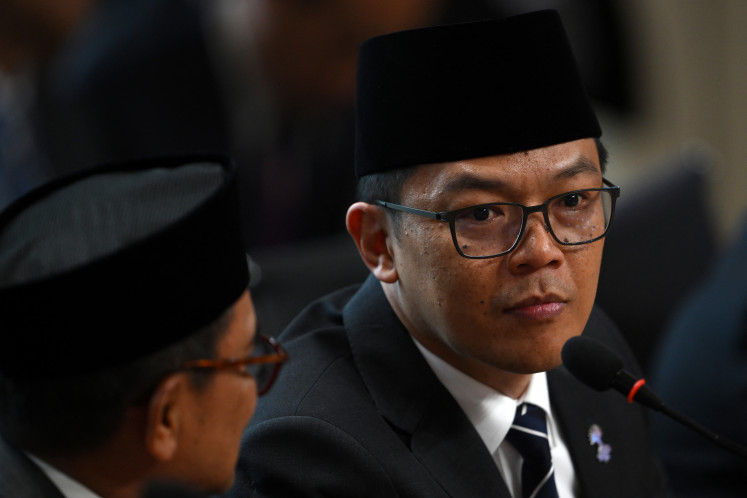Jokowi looks to investment to boost economic revival in Q3
Change text size
Gift Premium Articles
to Anyone

P
resident Joko “Jokowi” Widodo plans to boost foreign investment to support the virus-battered economy in the third quarter as the government’s stimulus spending remains slow and household spending weak.
Jokowi has instructed Coordinating Maritime Affairs and Investment Minister Luhut Pandjaitan to bolster investment in the third quarter this year, saying this, aside from boosting household spending, would be the key to economic growth.
“That could be the only key [to support the economy], as boosting exports is hard […] while domestic consumption is stuck,” Jokowi said on Monday during a Cabinet meeting. “There must be other things we can do, [including] boosting investment in the third quarter to revive the economy.”
Investment Coordinating Board (BKPM) chief Bahlil Lahadalia had projected Rp 213 trillion (US$14.43 billion) in investment in the third quarter this year, Jokowi went on to say. “If we cannot post positive investment growth, we should at least try, so that it will not contract by more than 5 percent.”
Indonesia’s economy shrank by 5.32 percent year-on-year (yoy) in the second quarter due to large-scale social restrictions imposed to curb the virus spread, taking a toll on household spending, investment and government expenditure, among others.
Household spending, which makes up more than 50 percent of the GDP, fell 5.51 percent yoy in the second quarter, while investment fell 8.61 percent.
Coordinating Economic Minister Airlangga Hartarto said the government had spent around 25 percent of the Rp 695.2 trillion stimulus package to support the economy and strengthen the healthcare response to the pandemic.
“The budget absorption must be pushed continuously so that the economy can get on a positive track,” he told reporters. “We have asked ministries that if their budget cannot be absorbed fully, they should shift [the money] to programs that support productivity.”
Funds for some of the stimulus programs, mainly those implemented by the government in the past, such as cash transfers and the Family Hope Program, could be disbursed in a fast and timely manner, Finance Minister Sri Mulyani Indrawati told lawmakers. “In some new programs, however, disbursing funds quickly is very challenging and will take time.”
“The strategy to use up the budget funds will be the key to lessen the economic contraction or even prevent a technical recession in the third quarter,” the finance minister said on Monday. “The government will use all of the instruments to restore consumption, investment and exports.”
The government has prepared several new stimulus programs, including cash transfers for more than 15 million workers totaling Rp 37.8 trillion and cash transfers for 9.1 million micro, small and medium enterprises (MSMEs) worth Rp 22.01 trillion.
It would also expand its social protection programs into December and lend at least Rp 28 trillion to eight regional administrations, including Jakarta, West Java and Banten, to help fund infrastructure development, Sri Mulyani added.
The President’s plan to bolster investment in the third quarter would be a herculean task, said Permata Bank economist Josua Pardede. The rising virus case number remained a major concern for foreign investors considering pouring money into Southeast Asia’s largest economy, he added.
“Global investors are still being cautious regarding the prospect of Indonesia’s economic recovery due to rising virus cases,” Josua told The Jakarta Post on Monday. “We can only hope for household spending and government expenditure to prop up the economy as boosting investment would be very hard to realize.”
Josua added that investment may start to recover by next year at the soonest, in line with a global economic recovery and new reforms in the omnibus bill on job creation, adding that it was realistic to expect an investment recovery next year rather than this year.









